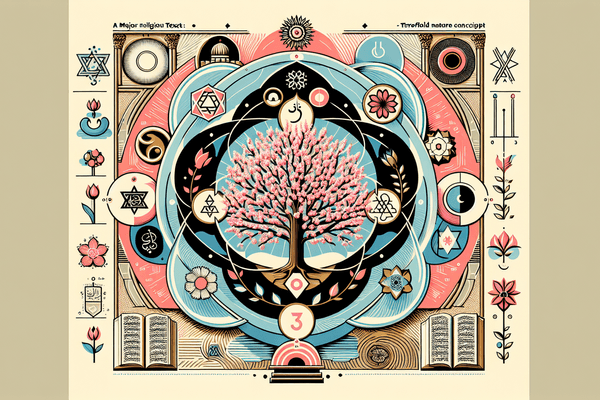Common Ground and Divergence: The Bible and the Quran
The Bible and the Quran, while distinct in their teachings, share significant common ground. Both texts emphasize monotheism and speak of figures like Abraham and Moses with reverence. They offer ethical guidelines, stressing the importance of compassion and justice, and speak of an afterlife where divine judgment awaits. However, they diverge on key tenets such as the nature of Jesus—viewed as a prophet in Islam and the Son of God in Christianity. The Quran is considered the verbatim word of God, while the Bible comprises texts believed to be inspired by God. The role of prophets and their messages also differs, with the Bible's 2 Timothy 3:16 asserting that all Scripture is inspired by God, while the Quran is seen as the unaltered word passed down to Muhammad.
Understanding the Holy Trinity
The Holy Trinity, one of the most profound and mysterious tenets of Christianity, is not explicitly named in the Bible but is instead revealed through the unity and work of the Father, Son, and Holy Spirit. The baptismal formula in Matthew 28:19 and the benediction in 2 Corinthians 13:14 subtly indicate the three distinct persons of the Trinity. While understanding the Holy Trinity can be challenging, the Bible provides clues to the harmonious relationship shared by the Father, Son, and Holy Spirit. For believers seeking reassurance in this doctrine, prayer and meditation on these scriptures can offer comfort and a deeper understanding of the complex nature of God.
The Deity of Jesus in Scripture
The deity of Jesus is a cornerstone of Christian belief, affirmed through various passages within the New Testament. John 1:1 refers to Jesus as the Word, who was with God and was God, while His divine nature is further underscored by His own statements about His identity, such as in John 10:30, where He proclaims His unity with the Father. Miracles and the resurrection serve as powerful evidence of His deity. Colossians 2:9 eloquently states that in Jesus, the fullness of deity lives in bodily form, highlighting the biblical foundation for this belief. As such, understanding Jesus' divine identity comes through both scripture study and personal faith experiences.
The Nature of Sin According to the Bible
The Bible presents sin as a universal condition that stems from the original fall of humanity. This narrative, beginning in Genesis 3:6-7, describes the first act of disobedience and its far-reaching consequences. Romans 3:23 further acknowledges that all have sinned and fall short of the glory of God, emphasizing the pervasiveness of sin. Despite this, the Bible also offers a message of redemption and forgiveness, as exemplified in 1 John 1:9, which promises that if we confess our sins, God is faithful and just to forgive us. This duality of sin's reality and the potential for forgiveness through Jesus' sacrifice represents a central theme in Christian theology.






